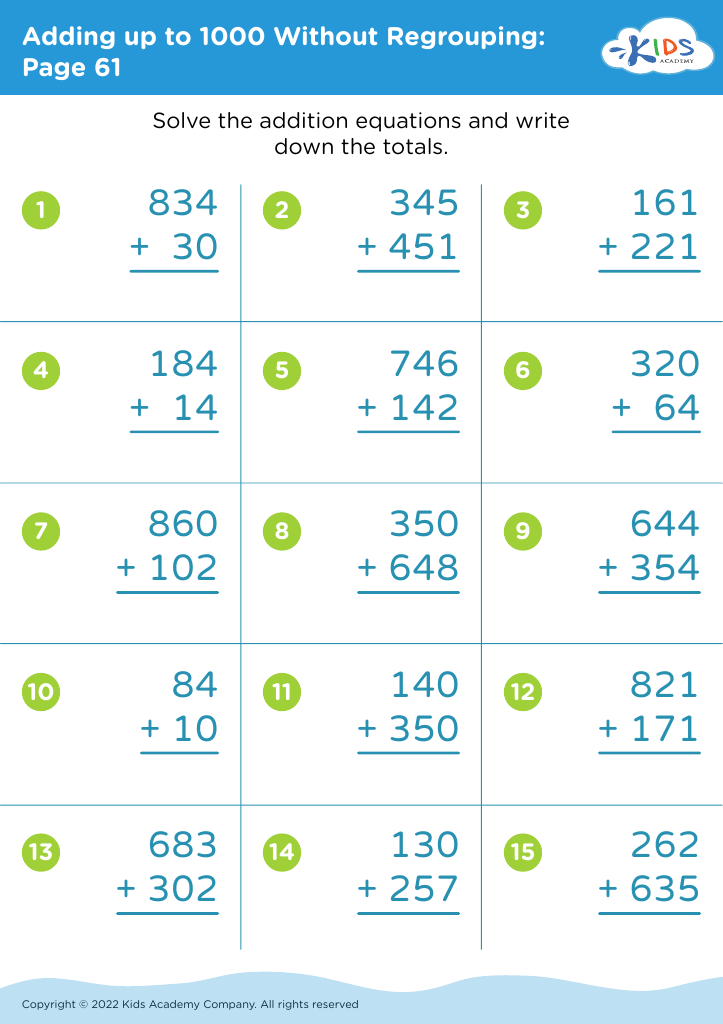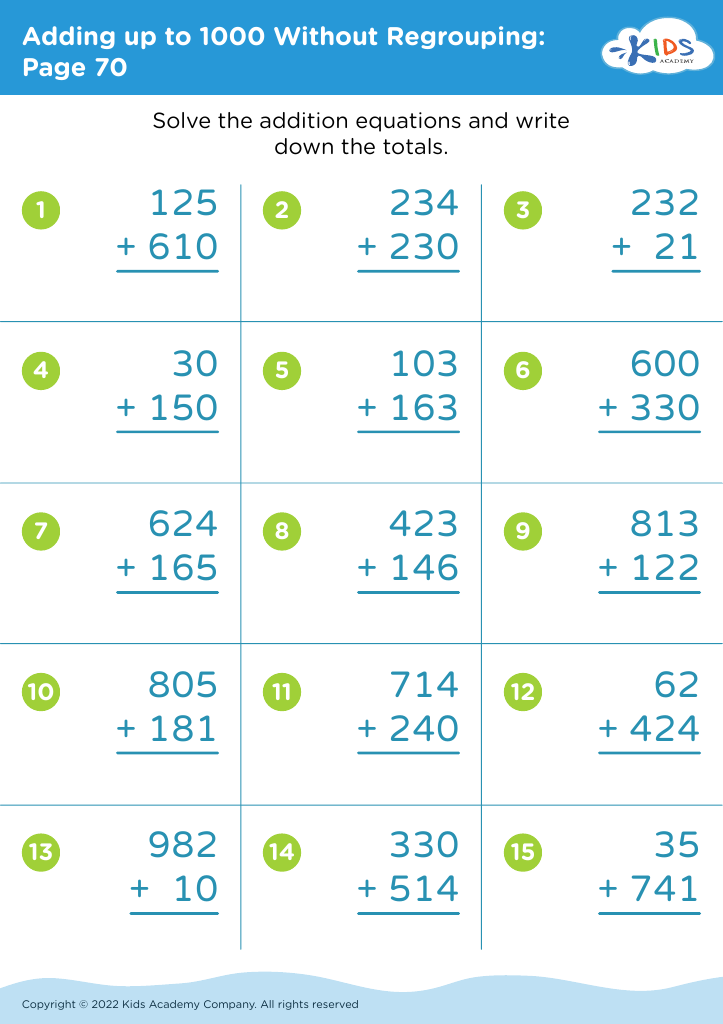Basic Addition Adding up to 1000 Without Regrouping Worksheets for Ages 6-9
4 filtered results
-
From - To
Our "Basic Addition Adding up to 1000 Without Regrouping Worksheets" are perfect for children ages 6-9 looking to master fundamental math skills. These printable worksheets offer engaging exercises that simplify understanding of adding large numbers without regrouping. Designed to facilitate independent learning, each activity progressively builds confidence and proficiency in handling three-digit addition problems. Ideal for classroom or home use, our comprehensive collection nurtures young mathematicians, ensuring a strong arithmetic foundation. Watch your child’s numerical competence grow as they practice adding up to 1000 effortlessly. Explore our user-friendly worksheets and turn learning addition into an enjoyable adventure!
Basic addition adding up to 1000 without regrouping is an essential skill for children aged 6-9, forming a solid foundation for their mathematical understanding. Parents and teachers should emphasize this skill because it plays a crucial role in developing number sense and mental math abilities. Mastering basic addition equips children with the confidence and proficiency to handle more complex mathematical concepts in the future, such as subtraction, multiplication, and division.
Focusing on addition without regrouping simplifies the learning process for young children, allowing them to internalize place value and understand the concept of combining numbers more effectively. It helps them visualize how numbers interact and develop strategies to add efficiently.
Furthermore, success in foundational math skills is often closely linked to overall academic achievement. Children who are comfortable with basic arithmetic tend to perform better across various subjects, as math is integrated into daily problem-solving and logical reasoning tasks. Early competence in addition also fosters a positive attitude toward math, reducing anxiety and encouraging a lifelong interest in the subject.
Providing children with plenty of practice through engaging activities ensures that they build a robust mathematical foundation and set the stage for future academic success. Parents and teachers should thus care about this basic skill to support children’s holistic educational development.














